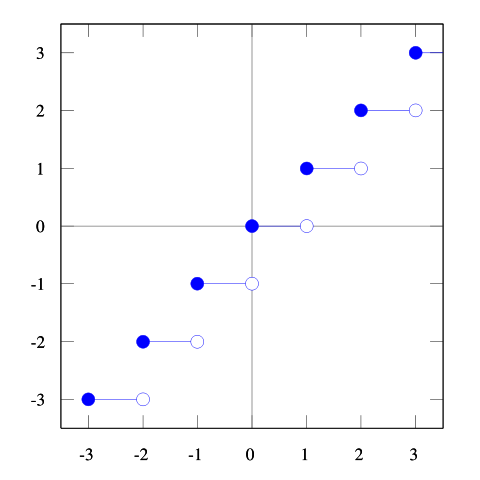Floor Function Returns

Calculate the sum of squares of integers such that the expression is a prime number.
Image Credit: Wikimedia Floor Function
The answer is 139.
This section requires Javascript.
You are seeing this because something didn't load right. We suggest you, (a) try
refreshing the page, (b) enabling javascript if it is disabled on your browser and,
finally, (c)
loading the
non-javascript version of this page
. We're sorry about the hassle.
Let 3 n − 2 1 = A
⌊ A ⌋ ⌊ A + 1 ⌋ = ⌊ A ⌋ ( ⌊ A ⌋ + 1 )
Let ⌊ A ⌋ = k
So, k ( k + 1 ) is a prime number where k is integer.
Possible values are 1 × 2 and − 2 × − 1
k = 1 , − 2 ⇒ A ∈ [ − 2 , − 1 ) ∪ [ 1 , 2 ) ⇒ 3 n ∈ [ − 1 . 5 , − 0 . 5 ) ∪ [ 1 . 5 , 2 . 5 ) ⇒ n ∈ [ − 4 . 5 , − 1 . 5 ) ∪ [ 4 . 5 , 7 . 5 )
So values of n are { − 4 , − 3 , − 2 , 5 , 6 , 7 }